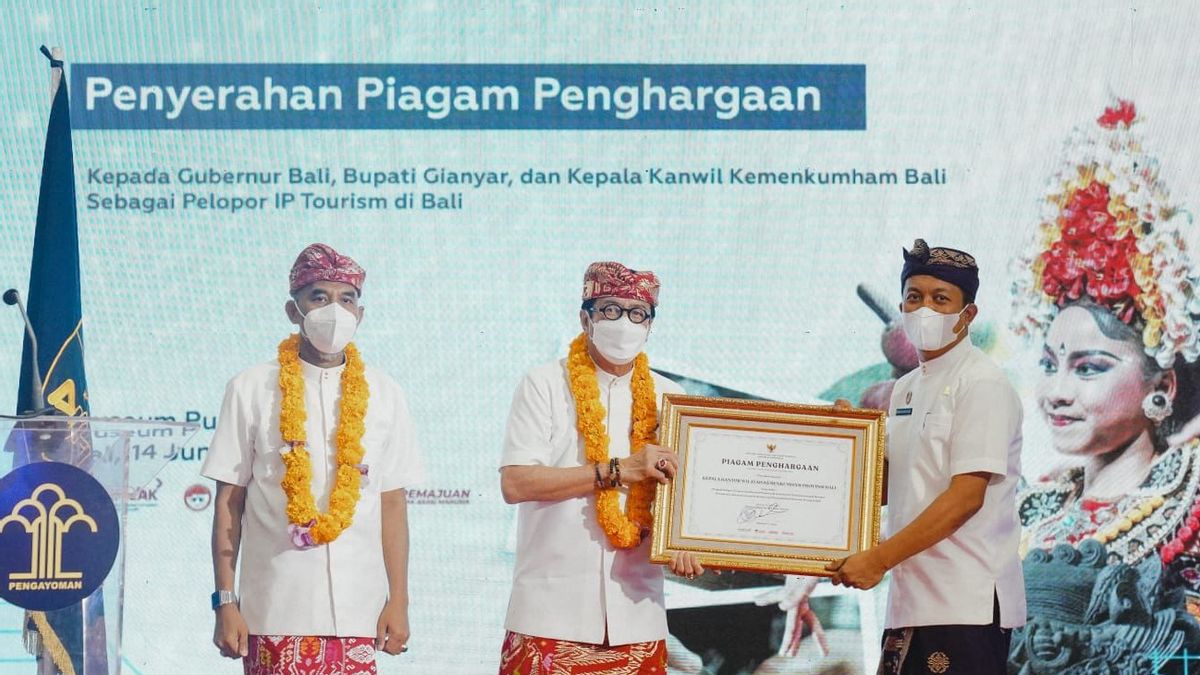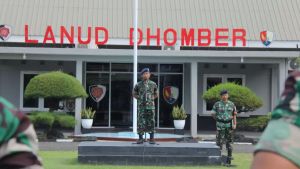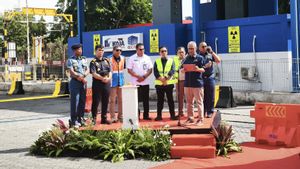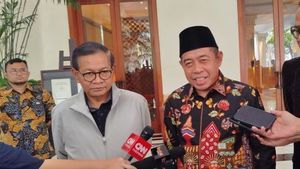GIANYAR - The Ministry of Law and Human Rights (Kemenkum HAM) has made Bali Province a pilot project for the development of intellectual property (IP) and tourism.
The reason is, Bali is believed to be an area that has a variety of cultures and traditional knowledge that all support tourism and the economy, both at the regional and national levels.
"There are two tourism clusters in Bali that are related to intellectual property, the first is KI and gastro, Balinese culinary tourism is very unique and can be a potential for gastro tourism, the second is KI and ecotourism, or environmentally friendly tourism," said Plt. Director General of Intellectual Property of the Ministry of Law and Human Rights Razilu when reporting the reasons for the Bali election to the Minister of Law and Human Rights Yasonna Laoly, Tuesday, June 14.
Razilu further explained that tourism as part of the creative economy cannot be separated from intellectual property.
He gave examples of silver handicrafts in Celuk, Gianyar, the tradition of traditional salt processing in Amed, Karangasem, and in Kusamba, Klungkung, then coffee in Kintamani, Bangli, which are part of communal intellectual property (KIK) that needs to be registered with the government through the Directorate General of Intellectual Property of the Ministry of Law and Human Rights. so that the rights to use them can contribute to tourism and economic development in the region.
Therefore, the Directorate General of Intellectual Property (DJKI) of the Ministry of Law and Human Rights re-launched the mobile IP clinic registration service at the Puri Painting Museum, Ubud, Gianyar, on June 14-16.
He hopes to encourage cultural actors, local governments, and art workers to register their various traditional knowledge and crafts.
Such an activity, said Razilu, had been carried out in Bali in March 2022.
"The Mobile IP Clinic as a miniature DJKI office moves to pick up (encourage people to register) regional intellectual property, increase applications at the domestic level, and (strengthen) national intellectual property protection," he said.
At the launch event of IP Tourism Bali and Mobile IP Clinic in Ubud, Gianyar, Tuesday, the Indonesian Minister of Law and Human Rights Yasonna Laoly explained that the use of intellectual property can help efforts to recover the regional and national economy, especially after being affected by the COVID-19 pandemic.
"Utilizing KIK can open the potential for national economic recovery for the tourism sector, which at the beginning of the COVID-19 pandemic was the sector that was worst hit by its economic effects," Yasonna said.
He also supports the establishment of Bali as a pilot project for the development of intellectual property and tourism.
"There is a lot of potential for KIK as a cultural heritage and tourism potential owned by the Province of Bali, so it is very appropriate to determine Bali as a pilot project for intellectual property tourism (intellectual property and tourism, ed.)," said Yasonna.
At the end of the event, the Minister of Law and Human Rights handed over four communal intellectual property registration documents (KIK) for Sang Hyang Jaran Dance, Sang Hyang Dedari Dance, Endek Cloth, and Balinese Songket.
Razilu explained that the Sang Hyang Dedari Dance and the Sang Hyang Jaran Gading Dance are expressions of traditional Balinese culture, especially the indigenous people of Geriana Kauh, Karangasem as conservationists, while Endek Fabrics and Balinese Songket Fabrics are expressions of traditional Balinese knowledge.
The English, Chinese, Japanese, Arabic, and French versions are automatically generated by the AI. So there may still be inaccuracies in translating, please always see Indonesian as our main language. (system supported by DigitalSiber.id)













